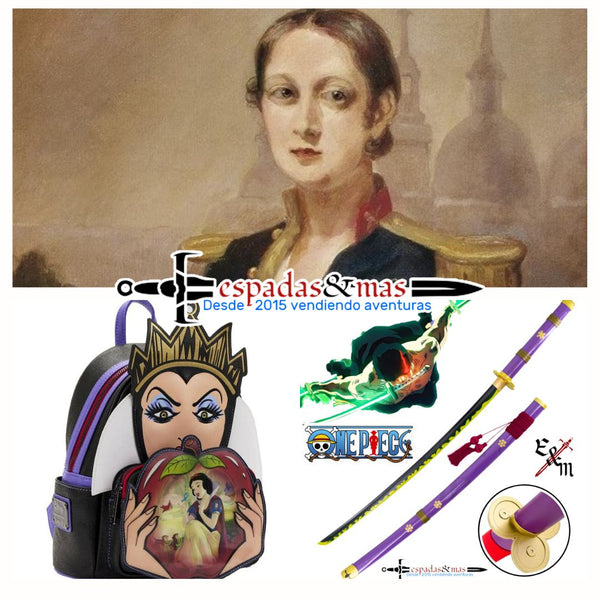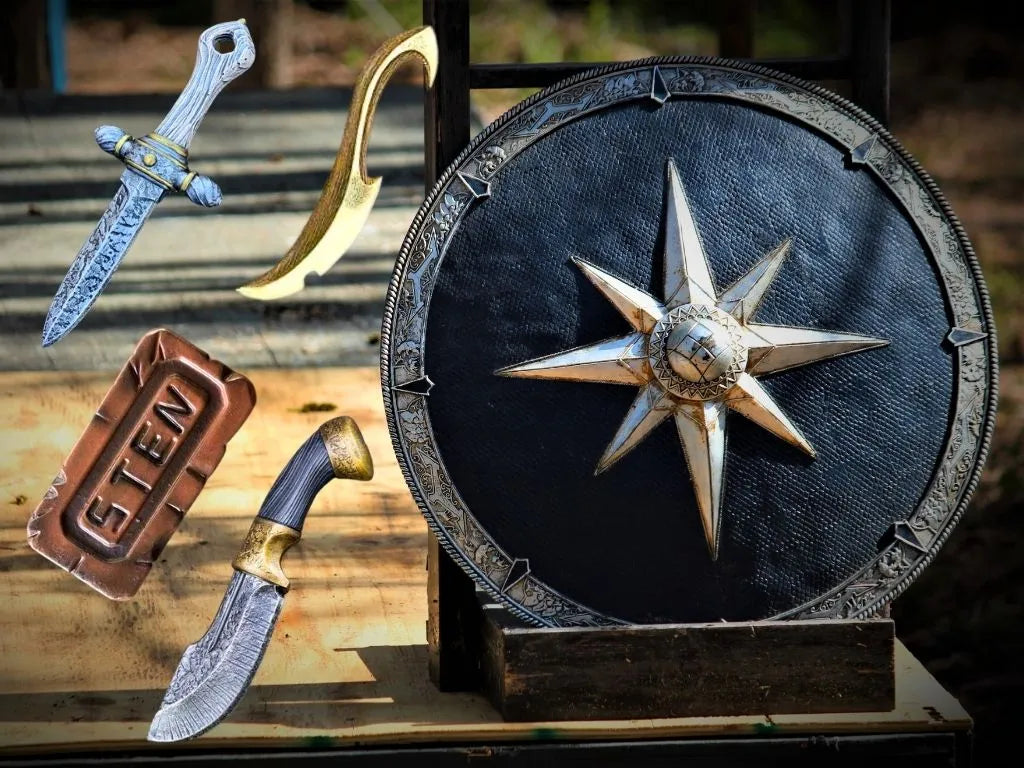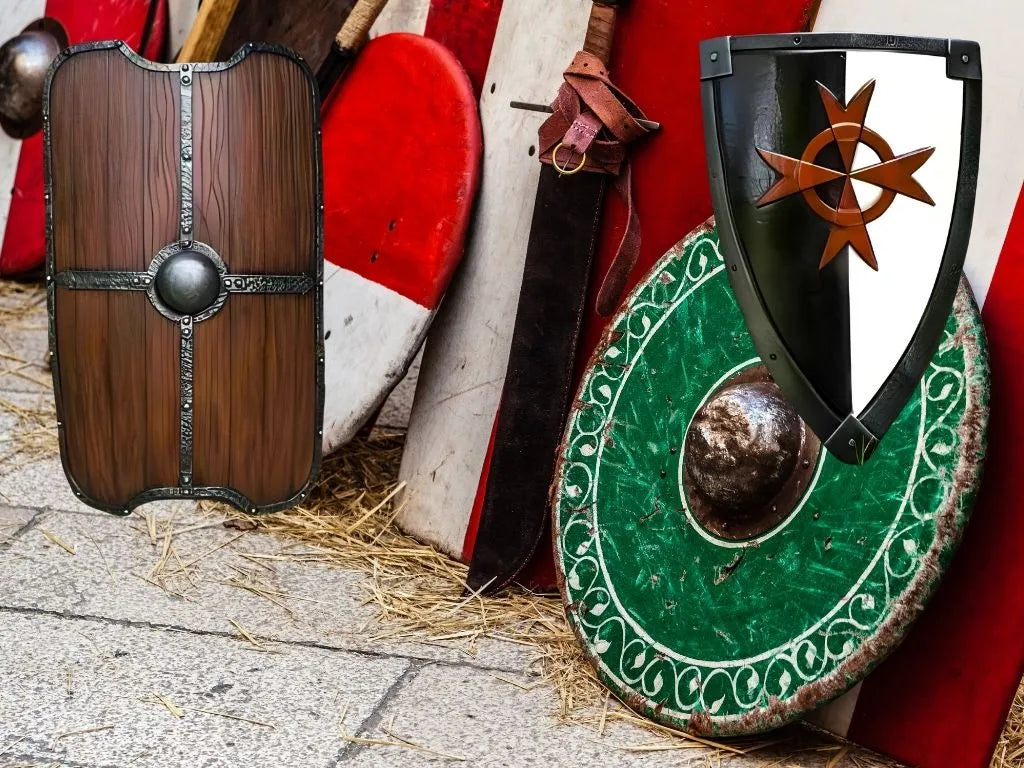Welcome to a new article from Espadas Y Más. In this case, and continuing with Women's Day, 8M, we continue talking about warrior women. Today, Agustina de Aragón.
Check out our Women's Day collection!
AUGUSTINE OF ARAGON
Agustina de Aragón was first born in Reus, a picturesque town in Tarragona, Spain, on March 4, 1786, and it was during the heated days of the War of Independence that her name resonated with courage and determination.
Check out our Red Queen sword!
At just twenty-two years old, Agustina was swept away by the torrents of history towards Zaragoza, a city marked by the fervour of resistance against the Napoleonic invasion. On 15 June 1808, when the drums of war were beating in the cobbled streets of the Aragonese capital, the French armies besieged the gates of Carmen and Portillo with the desire to conquer. However, the walls of Zaragoza did not yield to the foreign attack. It was in those days of fire and lead that Agustina stood as a symbol of courage and patriotism.

On July 2, in the midst of the din of battle, Agustina clung to the cannon of a battery, her heart burning with the spirit of freedom . With a firm hand and a resolute gaze, she fired at the French invaders, defying their relentless advance. Together with other brave men, Agustina became the bastion that prevented the enemy from entering the besieged city. The siege lasted until the fateful 15th of August, when the French, defeated and humiliated, raised their tents and abandoned the walls of Zaragoza.
Athena Wonder Woman Sword
The feat of Agustina de Aragón was not limited to that historic confrontation. Her indomitable spirit led her to participate in countless battles, from the siege of the Jerusalem convent in Zaragoza to the sieges of Teruel and Tortosa. Even when she was taken prisoner, her determination did not waver. Agustina escaped from the clutches of her captors, defying the chains of oppression.
Her sacrifice and courage did not go unnoticed. Ferdinand VII , in recognition of her bravery, granted her a pension of 100 reales, a symbol of gratitude towards a woman whose courage defied the limits imposed by her gender.

The bonds of love and war wove Agustina's destiny. She first married a soldier, whose uncertain fate led her to believe him dead. Then, her heart found refuge in the arms of Captain Luis de Talarbe, only to say goodbye to him in the cruel dance of armed conflict. Finally, a new love, Juan Eugenio Cobo de Belchite, accompanied her days of struggle and sacrifice.
Agustina's last breath resonated in the confines of Ceuta on May 20, 1857. However, her legacy transcended the boundaries of time and memory. In a gesture of homage, the City Council of Zaragoza decided to transfer her mortal remains, a measure that materialized in 1870. Since then, the indomitable spirit of Agustina de Aragón rests in the church of Nuestra Señora del Portillo, a beacon of inspiration for future generations.
Emma's Katana
Agustina de Aragón definitely embodies the heroism and epic nature of Spain, which transcends eras and perspectives, and at EspadasYMás we love to tell you about these types of historical events.







